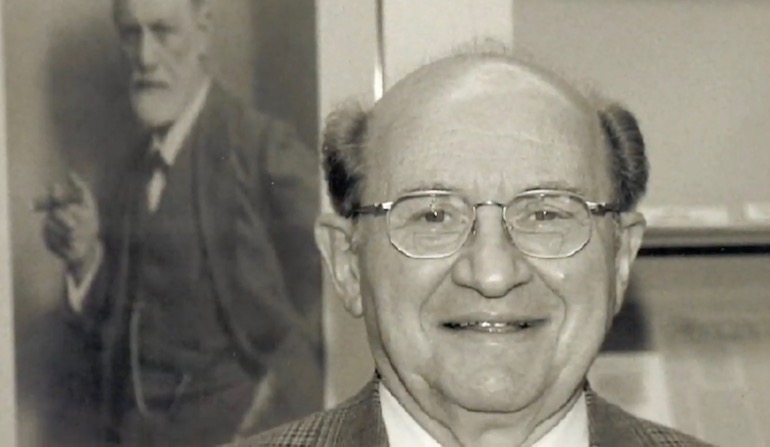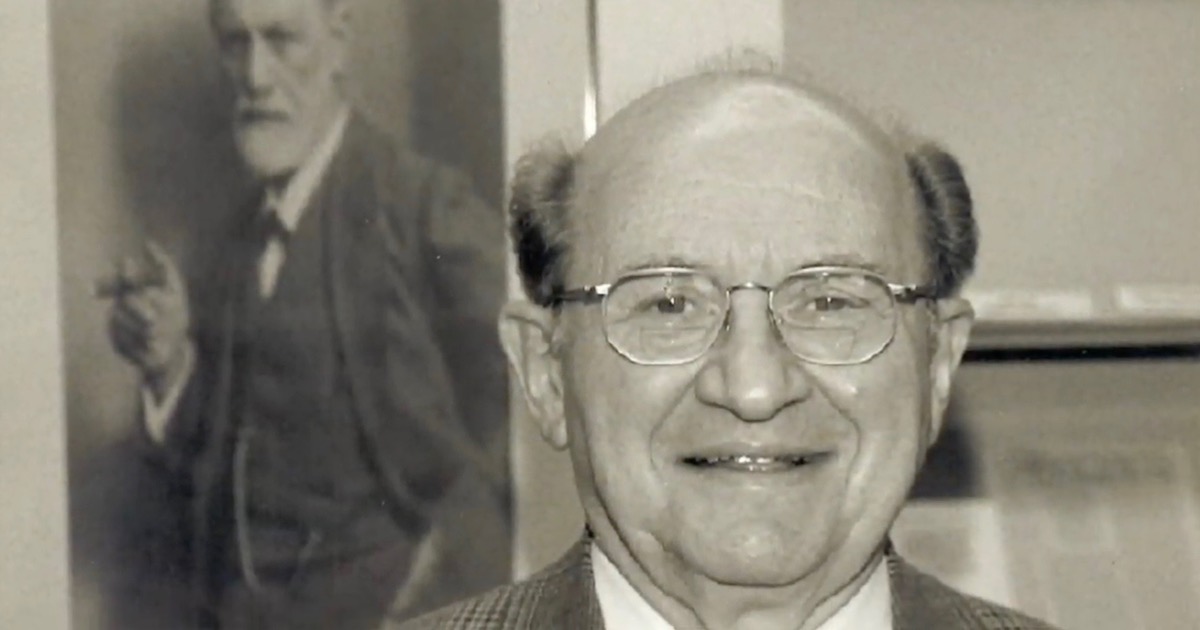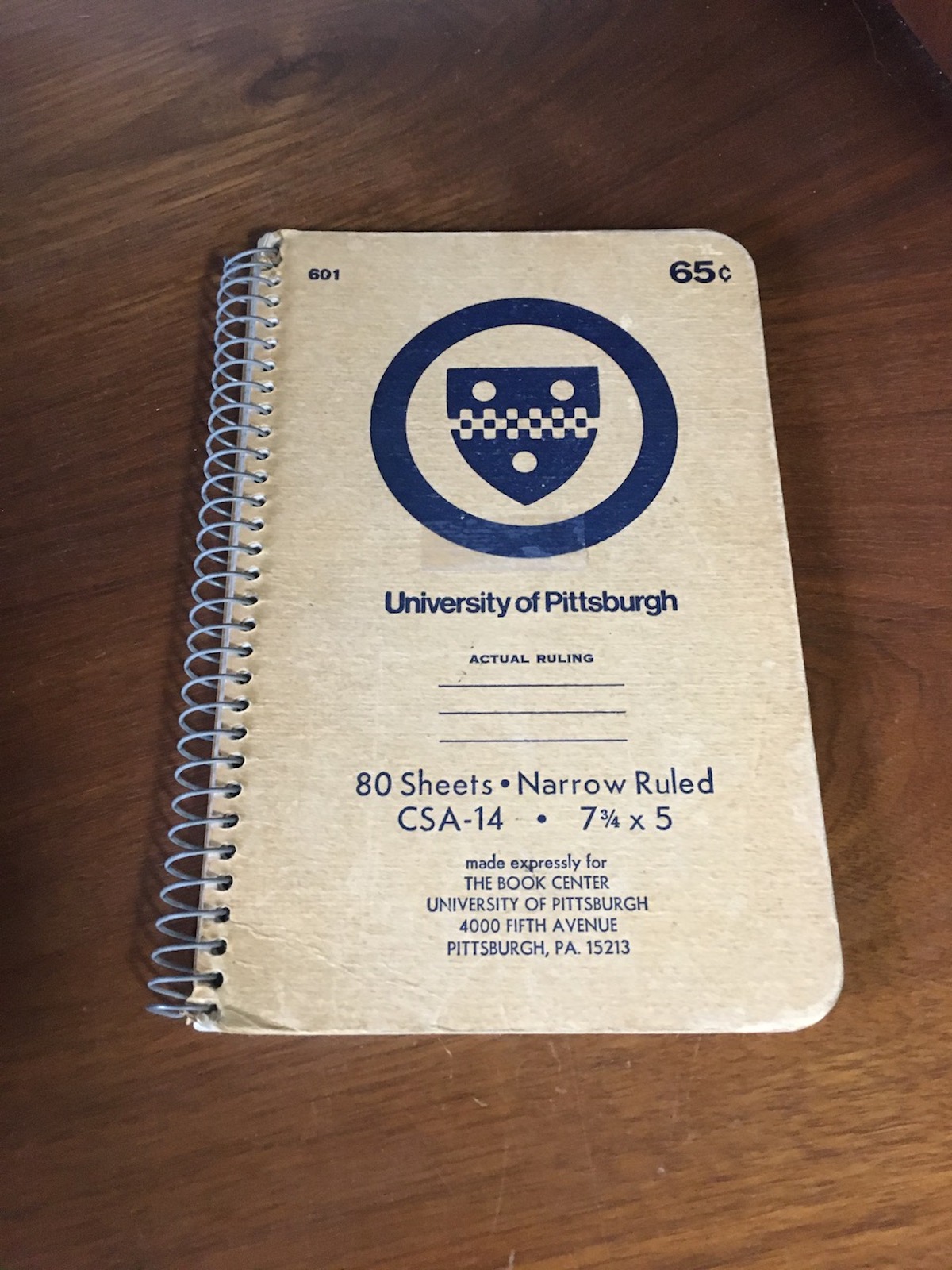 Education
Education
 Faith & Science
Faith & Science
 Intelligent Design
Intelligent Design
Opposition Is True Friendship: A Remembrance of Adolf Grünbaum (1923-2018)


“Opposition is true friendship.” —William Blake (1793)
Art School Dropout Becomes Wannabe Philosopher of Science
In September 1980, as an art school dropout, I wandered into the University of Pittsburgh and the best philosophy of science program in the world. At the time, I had no clue about Pittsburgh’s high standing in this particular academic field. I had no clue about much of anything, actually, except that I was keenly interested in questions about the foundations of science. Pitt was local, affordable, and by some inexplicable kindness, they had admitted me. (Years earlier, to show the world how unhappy I was with my art school, I stopped attending classes there, but for inscrutable reasons, still registered and continued to make the tuition payments. Understandably, this persuaded the art school that, despite my never showing up for classes, I remained an active student. You can imagine my grade transcript. I don’t think a single credit transferred to Pitt.) So that is the backstory: picture a daft and easily distracted ex-painter who read Thomas Kuhn on a whim and fell in love unexpectedly with a new set of questions. Eager to learn, knowing nothing.
In 1979, Pitt had inaugurated an honors college, under the guidance of the physicist Alec Stewart. Stewart invited full professors to teach honors courses to undergraduates (students these faculty might not otherwise have encountered) in areas of special interest to those professors. Philosopher of science Adolf Grünbaum accepted the invitation, to teach a course on science and religion. As soon as I saw the course description in the honors college catalog, which was accompanied by an explicit warning from Grünbaum himself about the severe discomfort theistic students might experience, I enrolled in the course. Doing so changed my life.
Grünbaum, who specialized in the philosophy of physics (although he later turned his critical attention to Freud and psychoanalysis), had come to Pitt in 1960 from the philosophy faculty of Lehigh University. Born in 1923 into a religiously conservative Jewish family in Cologne, Germany, Grünbaum became an atheist at the age of 13, after reading Schopenhauer. In 1938, following the Nazis’ rise to power, Grünbaum and his family fled from Germany, eight months before Kristallnacht, emigrating to New York City. There, knowing almost no English, Grünbaum attended high school in the Bronx — learning English, he told me, in large part by going to see gangster movies. Winning a scholarship to Wesleyan University, Grünbaum studied mathematics and physics there, then served in the U.S. Army as a German language translator, interrogating Nazi officers, after which he earned his PhD in the philosophy of science at Yale (1950), under the direction of Carl (“Peter”) Hempel. By the time I met him, Grünbaum had become a senior figure in the philosophy of science internationally, and had built Pitt into what Phillip Kitcher called “the Mecca of the philosophy of science.” Two philosophers who later came to national attention in the ID debate, on opposite sides, were working on their philosophy of science doctorates at Pitt at the same time I was an undergraduate there: Robert Pennock of Michigan State, and Steve Fuller of the University of Warwick.
A Demanding Teacher
Grünbaum was a demanding and passionate teacher, qualities apparent even from the cautionary paragraph he appended to the honors college science and religion course description. Students who believed in God, he said, should expect a bumpy ride in his classroom, and he would do nothing to soften those bumps — not because he disliked religious believers personally (quite the opposite — see below), but because intellectual rigor and honesty required no less. I soon learned that Grünbaum was equally strict about atheism, despite holding that view himself. Many “professional” atheists, he wrote dismissively, were “hacks” promulgating “poor defenses” and “fallacious arguments” for atheism, and “intellectual honesty demands not to win recruits by salesmanship in this way.”1
But, before the honors course began, I was terrified — and properly so. As it happens, I knew an academic acquaintance of Grünbaum’s, from the faculty of Carnegie-Mellon University, just up Forbes Avenue in Pittsburgh: the National Academy of Sciences physicist Robert Griffiths.
Griffiths and I attended the same Presbyterian church. When he learned that I would be taking Grünbaum’s course, Griffiths offered to let me see the syllabus from a previous year, so that I could get a head start on the voluminous reading required. If I believed in luck, I’d say this was a masterstroke of that mysterious property. As it turned out, I needed not luck, but every bit of head start I could manage.
The course readings were brutal. I will never forget driving cross-country as a passenger in a Volkswagen minibus, in mid August, as the starting date for the course fast approached, reading Bertrand Russell’s devastating dry English wit and his apparently invincible disarticulation of the classical arguments for God’s existence. Piece by piece, the arguments came apart in Russell’s hands, leaving little but debris when he was done.2 On the heels of Russell came Freud’s Future of an Illusion, replacing sardonic English wit with the unsparing acid bath of Viennese historical and psychological analysis. And so on. Doing the reading, for a theist like me, was akin to receiving a sustained beating. A polite, academic, well-scripted beating, but a beating nonetheless.
The Earthly Paradise of Reason, Evidence, and Logic
But then the course began, and I found myself in heaven. To be sure, Grünbaum was making a passionate case for atheism, but he was arguing for atheism, not resorting to the cheap and slovenly rhetorical devices of ridicule, contempt, or fashion — which are not arguments at all, of course, but simply abuse. Rather, he used evidence and logic.
Evidence and logic: think of Athena. Daughter of Zeus, the personification of wisdom, she would not be confined by anyone, but judged as she saw fit. If there can be evidence for a proposition, there can be evidence against it. Logic favors no fashions and is indifferent to sentiment or prejudice.
So I came prepared to argue. An example: one day in class, Grünbaum was arguing that religious opinions followed geography and ancestry. One was much likelier to believe in the existence of Brahma and Vishnu, for instance, if one were born on the Indian subcontinent, and raised by Hindu parents, than, say, being born in Lincoln, Nebraska — which is true.
That fact is also irrelevant, however, to the entirely separate question “Do Brahma and Vishnu exist?” Moreover, as I explained to Grünbaum, my Jewish brother-in-law Avner, a theist, was raised in Montreal by atheistic, Stalinist parents who intended that Avner should also be an atheist who adored the USSR. But he didn’t adore the USSR. And he most certainly believed in God.
The statistical religious-belief-follows-geography-and-parentage argument Grünbaum was making, however, allowed for occasional outliers such as Avner — meaning that Grünbaum’s position possessed no predictive strength. The holes in his net of social statistics let any human counterexample swim right on through. Thus, Grünbaum’s argument said nothing definitive in any particular case, and since every human being is a particular case — that’s you, me, Avner, Grünbaum (who celebrated his bar mitzvah in a conservative Cologne synagogue), Stalin (raised as a believer who sang in church choirs and was educated in a Russian Orthodox seminary in Tiflis) — the argument just wasn’t very good, by Grünbaum’s own standards. One will believe in the God of one’s hometown and parents, except when one doesn’t. And therefore we’re back to square zero. Does God exist or not? Birthplace and parentage are irrelevant.
The Unpredictable Ironies of Academic Mentoring
Grünbaum listened to my objection. Indeed, he listened carefully, because later on, in one-on-one conversation, he reminded me about Avner, within the context of the curious and unpredictable twists of human experience. One such twist, at which Grünbaum would have smiled, is the fact that you are reading this right now: an article by a Christian and an intelligent design proponent, who was recommended to graduate school by Adolf Grünbaum, an atheist philosopher of science. Strikingly, Grünbaum’s best-known Pitt graduate students were the philosophers of science Bas van Fraassen, a Christian, and the late Philip Quinn of Notre Dame University, another Christian. About Quinn, Grünbaum wrote:
…the gap between his Roman Catholicism and my atheism did not interfere in the least with his being a steadfast, invaluable, generous, and indeed delightful interlocutor in recent decades on the spectrum of issues I discussed in my series of critical writings on theism and on belief in it.3
I find the Quinn-Grünbaum friendship especially noteworthy, because the Roman Catholic students in Grünbaum’s science and religion course really faced the business end of his skepticism and scientific knowledge. In addition to God’s existence, they had to defend the immaculate conception and perpetual virginity of Mary, her assumption into Heaven, papal infallibility, transubstantiation, and an array of other Catholic doctrines not binding on the handful of Protestants in the room (most of the students professed no belief one way or another). Grünbaum knew Catholicism as if he had been educated from childhood by Jesuits. “I don’t know if God exists any more,” said one of his Catholic students, with a sigh, in the honors college lounge after class one afternoon, “but I’m still afraid to eat meat on Fridays.”
Again, however, Grünbaum himself observed to me with pride the remarkable number of theistic students, friends, and colleagues that he had. In 1984, as I prepared to write my senior thesis in philosophy4, he introduced me to Nicholas Rescher, a philosopher and another theist (whom Grünbaum recruited to Pitt) who was one of Grünbaum’s closest friends. It diminishes Grünbaum not a jot to say that he was far less interested in making converts than in finding people with whom he could argue, about the questions of lasting importance to him: the origin of the universe, the nature of science, the foundations of human understanding. And, towards the end of his career, Freud.
What Persists from a Friendship, and Why
An atheist who left many more converts to atheism in his wake — Richard Dawkins, let’s say — might grumble that Grünbaum was an ineffective exponent of the atheistic worldview. But that would miss entirely the point of what Grünbaum valued. When I leaf through my notes from the science and religion course (see the photo), I find sentences and ideas from Grünbaum which have set up permanent residence in my mind:

Paul’s notebook from science and religion course taught by Professor Adolf Grünbaum.
- If a statement is to be certain relative to the grounds by which it is supported, then its content cannot go beyond that of the statements expressing those grounds.
- Hypotheses go far beyond the content of data sentences.
- The ideal of empirical knowledge with certainty is logically self-contradictory.
Grünbaum taught philosophical and scientific tools and skills: e.g., how to locate an assumption, assess the weight of evidence, build or disassemble an argument, probe an intuition. What his students did with those tools, with respect to the inferences they made elsewhere, was not his responsibility — only that they used the tools well. The three propositions above play a central role in a book I am currently writing, On Common Descent, to whom — if Grünbaum were still alive — I would send an author-inscribed copy, in the hope that by return mail I would receive a blistering critique. And so, learn.
Long after I left Pitt for graduate school, and then into my tenure as a Senior Fellow at Discovery Institute, Grünbaum kept in touch with me, through the mediation of my brother Joel, a professor of medicine at Pitt. Grünbaum’s love of classical music, the story of how he struggled with, and overcame, crippling major depression, his droll sense of humor — “Freud talked a lot about sex, but don’t kid yourselves,” he laughed in class one day, “Siggy was a very bourgeois fellow” — his squabbles with Richard Feynman: I cannot relate everything relevant to my thankfulness for AG.5
But I am thankful that he lived and mentored me. I wish I had told him, one last time, before his death in November 2018, how grateful I remain.
Notes:
- Adolf Grünbaum, Autobiographical Philosophical Narrative (Amherst NY: Prometheus Books, 2009), pp. 46-47.
- Except for the design argument: “This argument,” wrote Russell, “has no formal logical defect; its premises are empirical, and its conclusion professes to be reached in accordance with the usual canons of empirical inference. The question whether it is to be accepted or not turns, therefore, not on general metaphysical questions, but on comparatively detailed considerations” (B. Russell, History of Western Philosophy [New York: Simon & Schuster, 1945], p. 589).
- A. Grünbaum, Autobiographical Narrative, p. 72.
- The Possibility of Design, 1984, 112 pp., thesis completed during an Independent Study Term in the Department of Philosophy, University of Pittsburgh (N. Rescher, supervisor).
- Because he admitted this and commented on it, Grünbaum would want me to mention his tendency, which he never unlearned, to write English as if it were a North American dialect of German. Example: “Alas, we are living in a period of historically untutored retroactive derogatory mythologizing that has become fashionable in the service of ideological special pleading” (Autobiographical Narrative, p. 37, emphasis added). German would have a single, special-purpose word for that long English string of four adjectives and a noun.
Photo at the top: Adolf Grünbaum, a screenshot from “GrunbaumEngage,” a tribute by the Center for Philosophy of Science, University of Pittsburgh.
